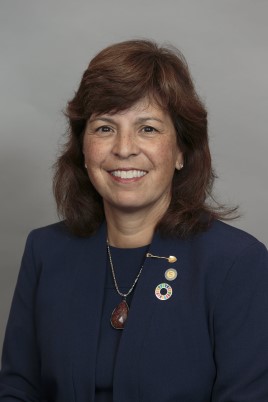Earlier this summer our nation exploded with outrage at the senseless killings of George Floyd and other Black Americans, calling tremendous attention to the systemic racism and lack of equity that continues to exist.
In a statement the Board of Trustees of the Water Environment Federation expressed its support for peaceful protests and the calls for dramatic changes in the country, and pledged that WEF would do its part to address systems of inequity and to build a more inclusive water sector.
We believe the first step is self-reflection, to look inward at the WEF organization and assess our own status on diversity, equity, and inclusion, particularly for Black Americans. This process began in June with an anonymous survey of staff to see how they feel about WEF’s internal culture, barriers and opportunities, and comfort with raising issues. Then the entire staff participated in a two-day training on diversity and unconscious bias. WEF is now in the process of selecting a consultant with expertise in diversity to take a long, deep dive into the organization, help us be honest in assessing any shortcomings, and guide us through necessary improvements. This will not be a quick, cursory examination, but rather take at least one year of intense, internal focus.
In August 2019 WEF launched a Workforce Diversity and Inclusion Task Force charged with providing guidance to the Board on where we should best focus efforts related to the development of a more diverse water workforce. The recommendations of the Task Force were presented to the Board at our April meeting and we are beginning to investigate a roadmap for our path forward. Due to the vital nature of this work, the Task Force will not simply disband, but instead transform into a permanent subcommittee of the Board and be accompanied by a group of WEF staff tasked with regularly working on DE&I.
WEF will pivot to considering our membership and volunteers. Having 35,000 water professionals as part of the WEF community presents an enormous opportunity to increase diversity and ensure that Black Americans and other underrepresented groups have pathways to inclusion in the water sector, particularly in positions of leadership.
We will also look outward at the broader water workforce - it’s a problem that of the 1.7 million workers in U.S. water infrastructure, 85 percent are male and two-thirds are white. Ultimately for our sector to address equity in society, our workforce needs to mirror the communities we serve. As one way to address this discrepancy, we will continue investing in InFlow, which launched in 2018 as a scholarship program to introduce scholars from historically underrepresented ethnic and racial groups and underserved communities to opportunities in the water industry and have had 74 participants in the first two years.
During this time of upheaval and uncertainty, it is essential that we listen and talk. So we are launching a special series of the Words On Water podcast to focus on the intersection of WEF and the water sector with Black Americans and diversity more broadly. These conversations and the other activities we have underway are not ultimate solutions. But they are steps forward and we all must move in this direction together.


 Jackie Jarrell, P.E., is the 2019-20 president of the Water Environment Federation (WEF), an international organization of water quality professionals headquartered in Alexandria, Va.
Jackie Jarrell, P.E., is the 2019-20 president of the Water Environment Federation (WEF), an international organization of water quality professionals headquartered in Alexandria, Va.